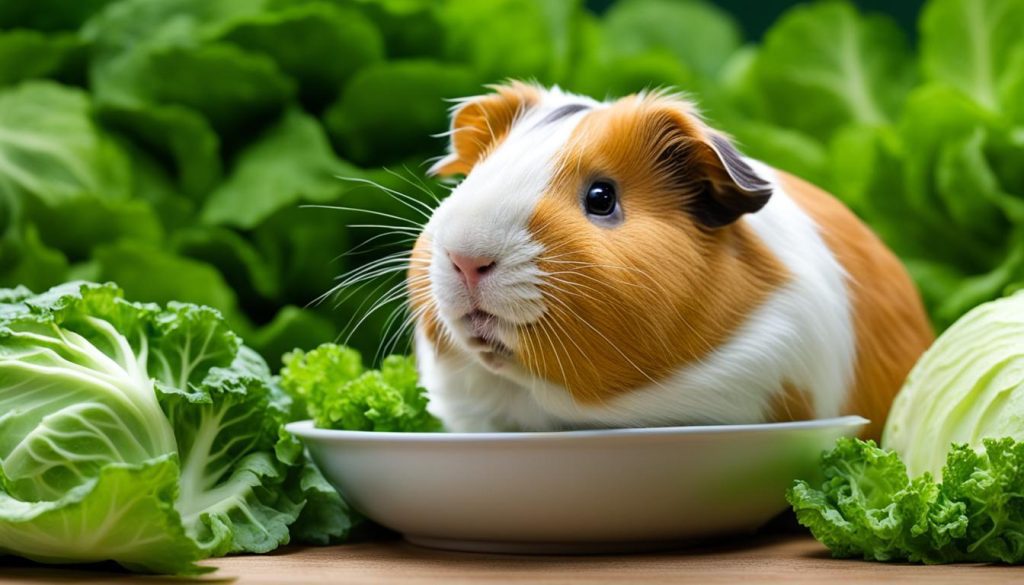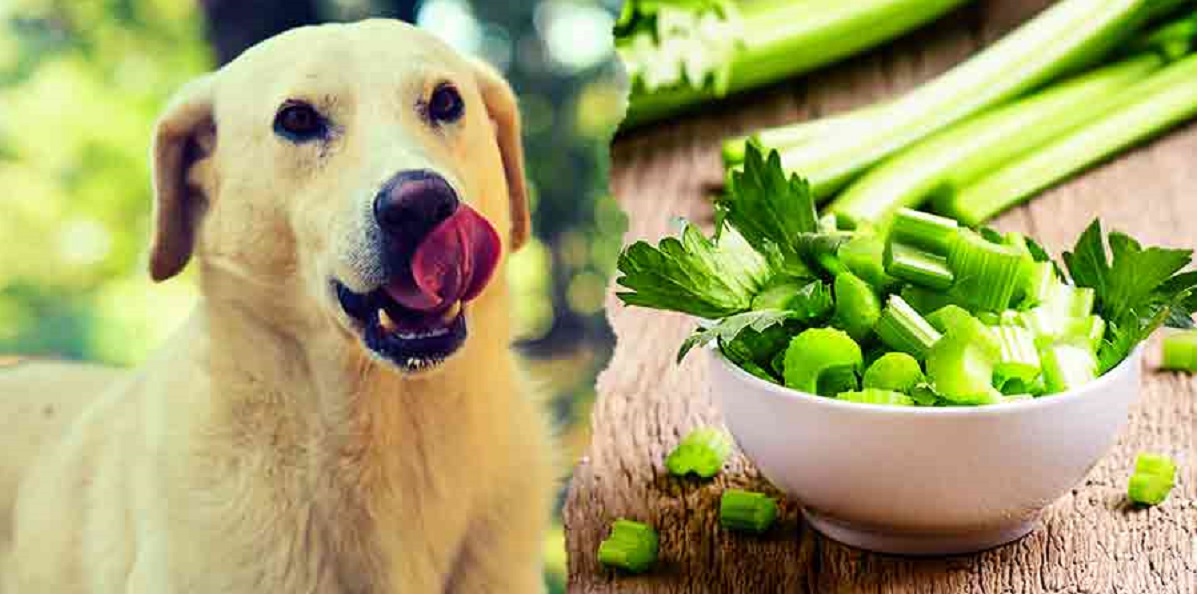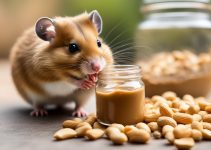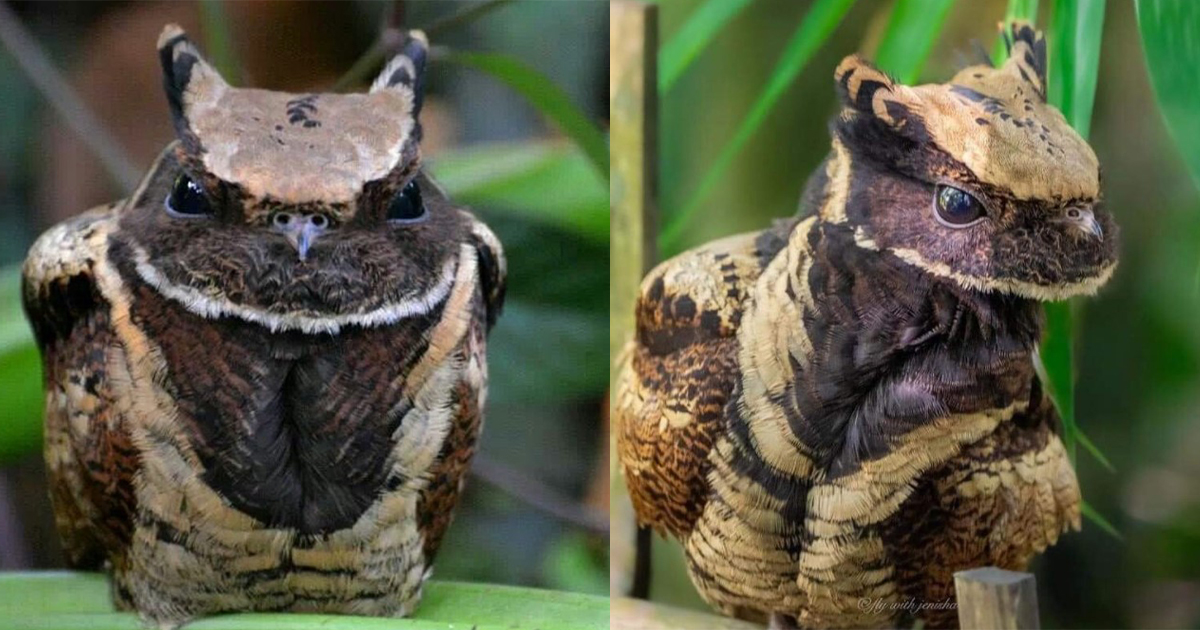Hello, fellow guinea pig enthusiasts! Today, I want to shed some light on a common question: Can guinea pigs eat cabbage? As you may know, providing our furry friends with a balanced diet is essential for their overall health and well-being. So, let’s dive into the world of pet nutrition and explore whether cabbage is a safe and nutritious option for our guinea pigs.
Can Guinea Pigs Eat Cabbage? Yes, they can enjoy it in moderation.
- Cabbage can be included in a guinea pig’s diet, but it should be introduced gradually to prevent digestive issues.
- Guinea pigs require foods rich in vitamin C since they cannot produce it on their own.
- The majority of a guinea pig’s diet should consist of grass hay to aid digestion and maintain healthy teeth.
- Commercial pellets fortified with vitamin C can be given in small portions.
- Fresh vegetables like cabbage, romaine lettuce, kale, and peppers can be included in a guinea pig’s diet.
Now that we’ve covered the basics, let’s explore the importance of hay in a guinea pig’s diet in the next section. Stay tuned!
The Importance of Hay in a Guinea Pig’s Diet
When it comes to a guinea pig’s diet, hay plays a crucial role in their overall health and well-being. Not only does hay aid in digestion, but it also helps maintain healthy teeth and provides essential nutrients. Guinea pigs have a unique digestive system that requires a high fiber diet, and grass hay, such as timothy or orchard hay, is the perfect choice.
Grass hay should make up about 80% of a guinea pig’s daily food intake. This ensures that they receive enough fiber to keep their digestive system running smoothly. Additionally, hay helps wear down their continuously growing teeth, preventing dental issues that can cause pain and discomfort. It’s important to provide hay in unlimited quantities, allowing them to graze throughout the day.
Why is hay so important?
Hay provides essential nutrients, including vitamins and minerals, that are necessary for a guinea pig’s overall health. It also helps prevent obesity by promoting a healthy weight. Ensuring that hay is always available helps satisfy their natural instinct to forage and keeps them mentally stimulated.
Remember to change the hay regularly, especially when it becomes soiled, to maintain freshness. Removing any spoiled or uneaten hay will prevent digestive issues and ensure that your guinea pig always has access to fresh and nutritious food. So, make sure to prioritize hay in your guinea pig’s diet for a happy and healthy pet!
Incorporating Vegetables into a Guinea Pig’s Diet
When it comes to providing a balanced diet for your guinea pig, incorporating fresh vegetables is essential. Not only do vegetables offer a range of important vitamins and minerals, but they also add variety and flavor to your pet’s meals. One vegetable that you may be wondering about is cabbage. Let’s explore the health benefits of cabbage for guinea pigs and how to safely incorporate it into their diet.
The Health Benefits of Cabbage
Cabbage is a nutritious vegetable that can provide several health benefits to your guinea pig. It is rich in vitamin C, an essential nutrient that guinea pigs require in their diet. Vitamin C helps to boost their immune system and promotes overall wellness. Additionally, cabbage contains fiber, which aids in digestion and supports a healthy gut.
Feeding Cabbage to Guinea Pigs
While cabbage can be a healthy addition to your guinea pig’s diet, it is important to introduce it gradually. Start by offering a small amount and observe how your guinea pig reacts. Some guinea pigs may have a sensitive digestive system and may experience gas or diarrhea if they consume cabbage in large quantities. Monitor their response and adjust the serving size accordingly.
Safe Vegetables for Guinea Pigs
In addition to cabbage, there are several other vegetables that are safe and beneficial for guinea pigs. Leafy greens like romaine lettuce, kale, and parsley are excellent choices. Red and green peppers, broccoli, carrots, zucchini, and tomato can also be included in their diet. Remember to provide a variety of vegetables to ensure a balanced and nutritious meal for your furry friend.

The Role of Fruit in a Guinea Pig’s Diet
When it comes to a guinea pig’s diet, fruit can be a delightful addition. However, it’s important to remember that fruit should only be given to them occasionally and in small portions. While fruits like kiwis, strawberries, and citrus fruits provide a good amount of vitamin C, they are also high in sugar, which can lead to dental and weight issues if consumed excessively.
Some suitable fruit options for guinea pigs include blueberries, oranges, apples, and bananas. These fruits can be offered as occasional treats to provide some variety and nutritional benefits. However, it’s crucial to remove any uneaten fruit to prevent spoilage and avoid overfeeding. Remember, moderation is key when it comes to incorporating fruit into a guinea pig’s diet.
As with any new food, it’s important to monitor your guinea pig for any adverse reactions when introducing fruit. If you notice any digestive issues or changes in behavior, it may be best to consult with a veterinarian to ensure the overall health and well-being of your furry friend.
Conclusion
A well-rounded guinea pig diet is essential for their overall health and well-being. By providing a balanced mix of pellets, hay, and fresh vegetables, you can ensure that your furry friend receives all the necessary nutrients they need.
Hay plays a vital role in a guinea pig’s diet as it aids in digestion, promotes healthy teeth, and provides essential nutrients. Make sure to offer a variety of grass hay, such as timothy or orchard hay, in unlimited quantities.
When it comes to incorporating vegetables, focus on leafy greens like romaine lettuce, cabbage, kale, and parsley. These vegetables offer a wide range of vitamins and minerals that are crucial for your guinea pig’s health. Remember to introduce new vegetables gradually and avoid high oxalate options like spinach and strawberries.
While fruit can be a tasty treat for guinea pigs, it should be given in moderation due to its high sugar content. Stick to options like kiwis, strawberries, and citrus fruits, and be sure to remove any uneaten fruit to prevent spoilage. Monitoring your guinea pig’s diet will help maintain their dental and weight health.
FAQ
Can guinea pigs eat cabbage?
Yes, guinea pigs can eat cabbage. Cabbage is a safe and nutritious vegetable that can be included in their diet. However, it should be given in moderation to prevent digestive issues.
What is the importance of hay in a guinea pig’s diet?
Hay is crucial for a guinea pig’s digestion, dental health, and overall well-being. It aids in proper digestion, helps maintain healthy teeth, and provides essential nutrients.
How can I incorporate vegetables into a guinea pig’s diet?
You can incorporate vegetables into a guinea pig’s diet by offering a variety of leafy greens like romaine lettuce, cabbage, kale, and parsley. Other safe options include red and green peppers, broccoli, carrots, zucchini, and tomato.
Can guinea pigs eat fruit?
Yes, guinea pigs can eat fruit, but it should be given as an occasional treat due to its high sugar content. Suitable options include kiwis, strawberries, citrus fruits, blueberries, oranges, apples, and bananas.






